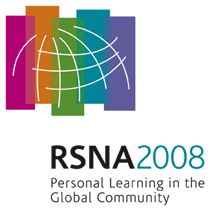
Abstract Archives of the RSNA, 2008
LL-CH4830-L12
Pulmonary Drug Toxicity: Radiological Appearances and Pathological Mechanisms of Established and Novel Agents
Education Exhibits
Presented on December 3, 2008
 Certificate of Merit
Certificate of Merit
Michael Gonsalves MBBS, Presenter: Nothing to Disclose
Arjun Nair MBBS, Abstract Co-Author: Nothing to Disclose
Ioannis Vlahos MBBS, Abstract Co-Author: Research grant, Bayer AG
Support, Bayer AG
Research Consultant, Siemens AG
Myrna Cobos Barco Godoy MD, Abstract Co-Author: Research grant, Bayer AG
Sisa Grubnic MD, Abstract Co-Author: Nothing to Disclose
1) Review pathological pathways of pulmonary drug toxicity and the resultant radiological manifestations as seen in established drugs 2) Summarize the pharmacological classes and indications for new therapeutic agents 3) Illustrate the radiology of new pulmonary drug toxicities via established and new pathological mechanisms
1) Table: mechanisms of pulmonary drug toxicity and common causative agents with MDCT HRCT examples 2) Summary of classes, names and clinical uses of new drugs 3) Demonstrate MDCT HRCT appearance of toxicity due to novel agents e.g. interferon, anti-TNF, GM-CSF, tyrosine kinase inhibitors, other anti-angiogenic, immunomodulatory and chemotherapeutic agents.
1) Understand the commonly encountered histopathological sequelae of pulmonary drug toxicity and their associated radiological manifestations 2) Understand from a radiological perspective new drug classes, their trade names and patients in whom in to expect their usage 3) Understand the radiological patterns of pulmonary toxicity encountered with novel drug therapies, risk factors, interactions and clinical outcomes.
Gonsalves, M,
Nair, A,
Vlahos, I,
Godoy, M,
Grubnic, S,
Pulmonary Drug Toxicity: Radiological Appearances and Pathological Mechanisms of Established and Novel Agents . Radiological Society of North America 2008 Scientific Assembly and Annual Meeting, February 18 - February 20, 2008 ,Chicago IL.
http://archive.rsna.org/2008/6017887.html


 Certificate of Merit
Certificate of Merit